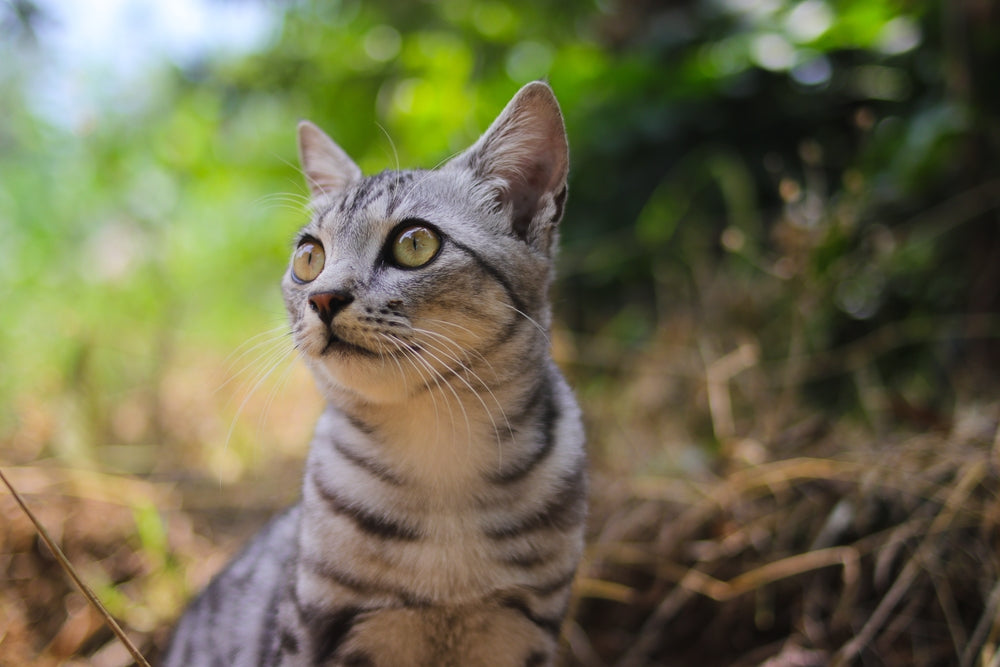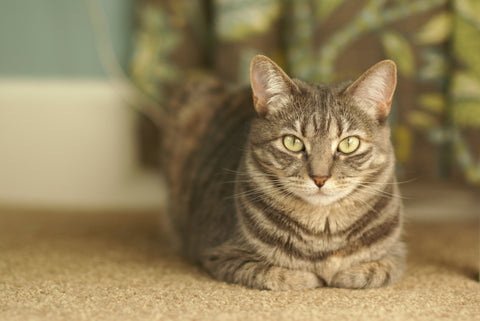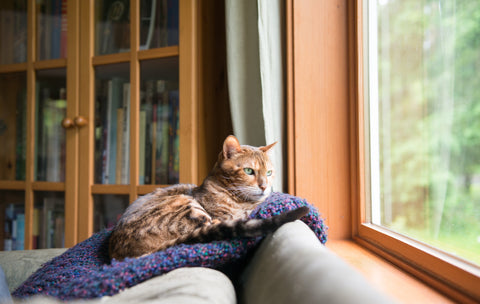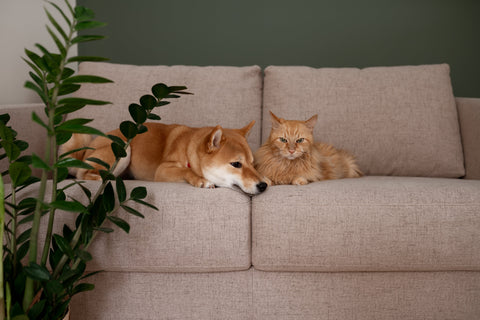

Taking a look at senior cat eye health
Cats may be a bit more agile than the average human (and probably better at catching mice, too) but in a lot of ways, they aren’t so different from us after all. Just like we do, our cats go through natural changes as they age. Unfortunately, these changes can come with certain side effects, including an increased risk of eye health issues. Eye problems of various types are common among senior cats. Here’s a look at some ways you can help to prevent or mitigate them.
Keep your cat fit and watch their blood pressure
Many chronic health issues your cat may face – including problems with their vision – can come about as a result of high blood pressure and conditions like diabetes and chronic kidney disease (CKD).
According to Cornell University’s Feline Health Centre, ocular problems are the most common organ issues seen in cats with hypertension (chronically high blood pressure). Among other things, hypertension can cause blindness due to retinal detachment, as well as bleeding or swelling in the back of the eye.
Top tip: Aim to keep your cat at a healthy weight and ensure they follow a vet-approved dietary regimen. If you suspect your cat may be showing signs of a chronic underlying health issue, arrange an appointment with your vet immediately. With proper treatment, certain causes of vision loss can be halted or reversed.

Monitor your cat for cataracts
A cataract is a clouding of the lens of the eye, which usually develops over time and impairs vision. This is another condition that both humans and cats are susceptible to, particularly with age.
Certain breeds of cats such as Persians, Himalayans and Birmans, are more at risk of developing cataracts. Health conditions such as diabetes and hypertension can also contribute.
Fortunately, cataracts can be surgically removed if needed. This procedure will reduce your cat’s ability to focus but will improve their overall vision.
Top tip: Be on the lookout for signs your cat may be developing, or struggling with, cataracts. Cataracts show up as a blue-grey cloudiness over the pupil. As they worsen, your cat is more likely to show signs of poor vision, such as bumping into obstacles. By noticing cataracts forming you can get treatment advice from your vet early on and can book your cat in for surgery if required.

Be sure to feed your cat a nutritionally complete diet
Many chronic health issues that your cat may end up experiencing can be caused, or exacerbated by, nutritional deficiencies of one kind or another.
Some of these deficiencies are directly connected to poor eye health. A deficiency in the amino acid taurine, for example, is associated with degeneration of the retina in cats.
A well-balanced diet and good cat digestive care gives your cat the best chance of maintaining good overall health, including good eye health.
Top tip: Feed your cat high-quality, nutritionally complete food. If in doubt, seek recommendations from your vet.

Keep your cat (and their eyes) clean
As cats age, they may struggle to keep themselves as clean as they once did. Not only does this lead to potential skin infections, matted fur and bad odours, but it may also increase the risk of harmful bacteria spreading to your cat’s eyes.
Taking the time to clean your cat regularly – especially around the eyes – may help to stave off certain ocular health issues.
Top tip: Brush and clean your cat on a regular basis, including by bathing them as required. If your cat’s eyes seem irritated, gently wipe them with a damp cloth, starting from the tear ducts and working outwards. Be sure to only do this while your cat’s eyes are closed.
Immediately consult with your vet if your cat’s eyes seem infected, or if they’ve been irritated for a prolonged period of time.
If in doubt, always consult your vet
As a caring cat owner, it’s important to be on the lookout for signs that your feline may be in distress. Nonetheless, it can be difficult to know when your cat is struggling with a more serious issue such as vision loss, and when they may be acting out of sorts due to something like stress.
If in doubt, always consult with your vet. They’ll be able to help confirm or deny your suspicions and give you an action plan for ensuring that your cat continues to thrive throughout their golden years.
Are there any feline health topics that you’d like to learn more about? Reach out via our Instagram and Facebook pages.



